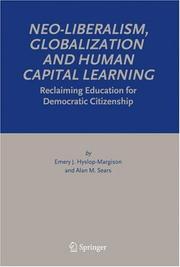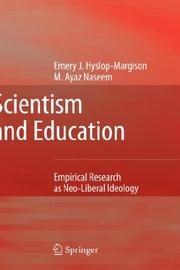| Listing 1 - 10 of 20 | << page >> |
Sort by
|
Book
Year: 1967 Publisher: Boulder, Colo. University of Colorado Press
Abstract | Keywords | Export | Availability | Bookmark
 Loading...
Loading...Choose an application
- Reference Manager
- EndNote
- RefWorks (Direct export to RefWorks)
Book
Year: 1985 Publisher: Bruxelles: Services de programmation de la politique scientifique,
Abstract | Keywords | Export | Availability | Bookmark
 Loading...
Loading...Choose an application
- Reference Manager
- EndNote
- RefWorks (Direct export to RefWorks)
Isolation thermique --- Etanchéité --- Ventilation
Book
Year: 1985 Publisher: Bruxelles : Programmation de la Politique Scientifique,
Abstract | Keywords | Export | Availability | Bookmark
 Loading...
Loading...Choose an application
- Reference Manager
- EndNote
- RefWorks (Direct export to RefWorks)
Économies d'énergie --- Ventilation --- Energy conservation. --- Ventilation. --- Standards.

ISBN: 1280865415 9786610865413 1402034229 1402034210 9048168600 9781402034213 9781402034220 Year: 2006 Publisher: Dordrecht : Springer,
Abstract | Keywords | Export | Availability | Bookmark
 Loading...
Loading...Choose an application
- Reference Manager
- EndNote
- RefWorks (Direct export to RefWorks)
Throughout the world, neoliberalism functions to decouple learning from the most important elements of civic education, transforming education into training and students into consumers. Neoliberalism, Globalization, and Human Capital Learning is an enormously important book that reveals in painstaking detail how neoliberal ideology destroys critical education. But it does much more. It also provides the insights and tools for educators to both overcome the market-based attack on critical education and address schooling as a democratic public sphere and the classroom as a laboratory for the nurturing of critical agency and social responsibility. This dynamic book should stir a public outcry among concerned citizens and educators through out the globe. Henry A.Giroux is the Global TV Network Chair at McMaster University and the author of the more recent America on the Edge and Beyond the Spectacle of Terrorism.
Education --- Democracy. --- Public schools. --- Human capital. --- Citizenship --- Political aspects. --- Study and teaching. --- Human assets --- Human beings --- Human resources --- Capital --- Labor supply --- Common schools --- Grammar schools --- School funds --- Secondary schools --- Schools --- Self-government --- Political science --- Equality --- Representative government and representation --- Republics --- Politics and education --- Economic value --- Curriculum planning. --- Curriculum Studies. --- Philosophy of Education. --- Educational Policy and Politics. --- Professional & Vocational Education. --- Philosophy. --- Curriculum development --- Instructional systems --- Planning --- Curricula --- Design --- Democracy --- Human capital --- Public schools --- #SBIB:316.334.1O240 --- #SBIB:316.334.1O340 --- #SBIB:324H60 --- Study and teaching --- Political aspects --- Democratisering van, in en door onderwijs: algemeen --- Onderwijs en sociale verandering, onderwijs en samenleving --- Politieke socialisatie --- Curriculums (Courses of study). --- Education—Curricula. --- Philosophy and social sciences. --- Educational policy. --- Education and state. --- Professional education. --- Vocational education. --- Education, Vocational --- Vocational training --- Work experience --- Technical education --- Education, Professional --- Career education --- Education, Higher --- Education policy --- Educational policy --- State and education --- Social policy --- Endowment of research --- Social sciences and philosophy --- Social sciences --- Core curriculum --- Courses of study --- Curricula (Courses of study) --- Curriculums (Courses of study) --- Study, Courses of --- Government policy

ISBN: 1281117420 9786611117429 1402066783 1402066775 9048176972 Year: 2007 Publisher: [Dordrecht] : Springer,
Abstract | Keywords | Export | Availability | Bookmark
 Loading...
Loading...Choose an application
- Reference Manager
- EndNote
- RefWorks (Direct export to RefWorks)
This volume offers a critical examination of the growing pressure to apply scientific principles as a means to improve education. The authors trace the ideology of scientism to the early faith Auguste Comte placed in science and the scientific method as a panacea to all human problem solving. By revealing many of the epistemological problems confronted by the social sciences, including education, the authors undermine the prevailing view that a science of education is possible or desirable. Besides revealing the epistemological problems associated with education research, they suggest that the instrumentalism and micro level responsibility related to scientism in education constitute a manipulative ideological smokescreen to distract public attention away from the structural inequities that generate disparate academic outcomes among students in industrialized democracies. The book deals a severe blow to the belief that science is a suitable lens through which to view or strengthen educational practice. "One begins this book with the skeptical belief that it can’t be right. The task of reading, then, is to locate where Hyslop-Margison goes wrong to reach his radical and disturbing conclusions. At the very least, even the most skeptical will have to recognize that the unsayable—that current educational research has proven largely fruitless for discernable reasons—is certainly plausible. He brilliantly brings an issue that has been considered too eccentric to contemplate into the heart of current educational discourse. Everyone concerned with educational research—researchers and those policy-makers, administrators, and other educational workers who draw on the products of educational research should read this important book carefully." Kieran Egan, Faculty of Education, Simon Fraser University.
Education --- Scientism. --- Research --- Methodology. --- Knowledge, Theory of --- Science --- Methodology --- Social sciences --- Genetic epistemology. --- Administration, Organization and Leadership. --- Educational Policy and Politics. --- Educational Philosophy. --- Philosophy of the Social Sciences. --- Epistemology. --- Philosophy. --- Developmental psychology --- Social philosophy --- Social theory --- School management and organization. --- School administration. --- Educational policy. --- Education and state. --- Education—Philosophy. --- Philosophy and social sciences. --- Education policy --- Educational policy --- State and education --- Social policy --- Endowment of research --- Administration, Educational --- Educational administration --- Inspection of schools --- Operation policies, School --- Policies, School operation --- School administration --- School inspection --- School operation policies --- School organization --- Schools --- Management --- Organization --- Epistemology --- Theory of knowledge --- Philosophy --- Psychology --- Social sciences and philosophy --- Government policy --- Inspection --- Management and organization
Book
ISBN: 9048190991 9786613003096 9048191009 1283003090 Year: 2010 Publisher: Dordrecht : Springer,
Abstract | Keywords | Export | Availability | Bookmark
 Loading...
Loading...Choose an application
- Reference Manager
- EndNote
- RefWorks (Direct export to RefWorks)
A lack of in-depth philosophical analysis has left an unacceptable deficit in the understanding, appreciating and applying of Paulo Freire’s work. This lack of analysis promotes frequent misconceptions and creates superficial practice within education. Indeed, the philosophical assumptions contributing to Freire’s critical pedagogy require significant intellectual effort to identify, unravel, and ultimately evaluate on the basis of their epistemic, moral and pedagogical tenability. This book generates a far richer and yet more accessible understanding of Freire’s theories. It does so because such important ideas, values and attitudes should not suffer from classroom superficiality. Ideas such as banking education, conscientization and humanization are debased when they are reduced to slogans lacking the intellectual support they deserve. In order to understand such terms and their origins more fully, a more in depth examination of Freire’s concepts and their philosophical origins is desperately needed. This accessible book provides teachers, students and others with precisely such an examination of Freire’s ideas on transformative education.
Critical pedagogy. --- Education -- Philosophy. --- Education -- Political aspects. --- Freire, Paulo, 1921-1997. --- Critical pedagogy --- Education --- Social Sciences --- Education, Special Topics --- Popular education --- Public schools. --- Educational change. --- Philosophy. --- Common schools --- Grammar schools --- School funds --- Education. --- Philosophy and social sciences. --- Educational Philosophy. --- Philosophy of Education. --- Change, Educational --- Education change --- Education reform --- Educational reform --- Reform, Education --- School reform --- Educational planning --- Educational innovations --- Secondary schools --- Schools --- Critical theory --- Non-formal education --- Community education --- Critical humanism in education --- Radical pedagogy --- Transformative learning --- Freire, Paulo, --- Freire, Paulo

ISBN: 9781402066771 Year: 2007 Publisher: S.l. Springer
Abstract | Keywords | Export | Availability | Bookmark
 Loading...
Loading...Choose an application
- Reference Manager
- EndNote
- RefWorks (Direct export to RefWorks)
Education --- Scientism. --- Research --- Methodology. --- Scientism --- 37.001 --- 37.001 Filosofie van opvoeding en onderwijs --- Filosofie van opvoeding en onderwijs --- Knowledge, Theory of --- Science --- Children --- Education, Primitive --- Education of children --- Human resource development --- Instruction --- Pedagogy --- Schooling --- Students --- Youth --- Civilization --- Learning and scholarship --- Mental discipline --- Schools --- Teaching --- Training --- Research&delete& --- Methodology
Book
Abstract | Keywords | Export | Availability | Bookmark
 Loading...
Loading...Choose an application
- Reference Manager
- EndNote
- RefWorks (Direct export to RefWorks)
Book
Abstract | Keywords | Export | Availability | Bookmark
 Loading...
Loading...Choose an application
- Reference Manager
- EndNote
- RefWorks (Direct export to RefWorks)
Book
ISBN: 9087907958 9789087907952 9789087907945 908790794X 9789087907952 Year: 2009 Publisher: Leiden, Netherlands : Sense Publishers,
Abstract | Keywords | Export | Availability | Bookmark
 Loading...
Loading...Choose an application
- Reference Manager
- EndNote
- RefWorks (Direct export to RefWorks)
As we move forward well into the 21st century most citizens around the globe seemingly accept the rudiments of a democratic citizenship. And yet in spite of this broad acceptance, a clear articulation of what democratic citizenship entails remains somewhat elusive. In this book, Hyslop-Margison and Thayer achieve two critically important objectives in response to this problem. First, they successfully articulate the threat to democracy posed by current citizenship education programs that adopt a largely instrumental framework fostering passivity and compliance by protecting the established parameters of neo-liberal social design. Second, they show a way out of this anti-democratic trap by illustrating how critical theory, with its marvelous ability to provide trenchant critiques of capitalism and turn those critiques into concrete political action, provides the ideal pedagogical approach to educate our students effectively as future democratic citizens. The authors critique the conditions of modern democratic citizenship and distinguish a robust, or thick, version of citizenship based on citizen agency and participation in the construction of social reality from contemporary models that undermine citizen engagement. They contend that it is only through critical theory and the political agency it inspires that meaningful democratic change can and must occur. Hence, the role of education in their view is not merely to prepare students for a new economic reality, but to prepare them instead to shape that reality in more progressive and socially just ways. This book eloquently argues that the citizenship mission of schools ought to teach students what is possible rather than simply objectifying them as human capital being prepared for the inevitable impact of the policies determined by others.
| Listing 1 - 10 of 20 | << page >> |
Sort by
|

 Search
Search Feedback
Feedback About UniCat
About UniCat  Help
Help News
News